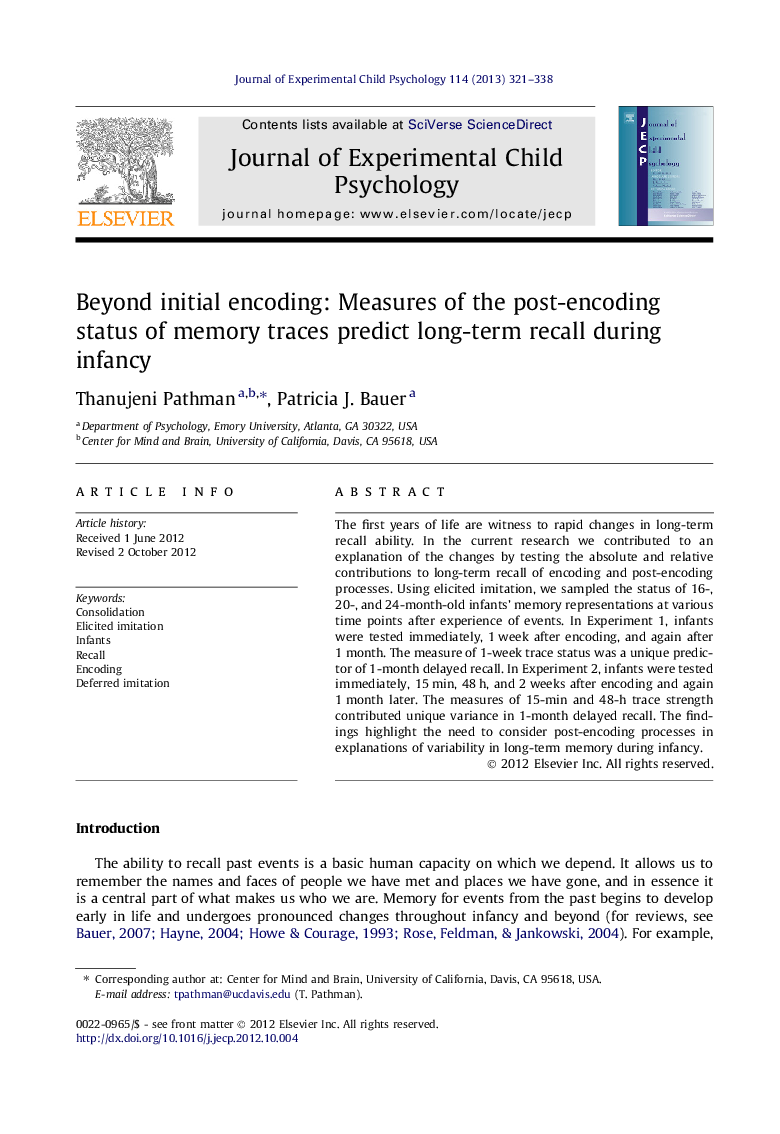| Article ID | Journal | Published Year | Pages | File Type |
|---|---|---|---|---|
| 918312 | Journal of Experimental Child Psychology | 2013 | 18 Pages |
The first years of life are witness to rapid changes in long-term recall ability. In the current research we contributed to an explanation of the changes by testing the absolute and relative contributions to long-term recall of encoding and post-encoding processes. Using elicited imitation, we sampled the status of 16-, 20-, and 24-month-old infants’ memory representations at various time points after experience of events. In Experiment 1, infants were tested immediately, 1 week after encoding, and again after 1 month. The measure of 1-week trace status was a unique predictor of 1-month delayed recall. In Experiment 2, infants were tested immediately, 15 min, 48 h, and 2 weeks after encoding and again 1 month later. The measures of 15-min and 48-h trace strength contributed unique variance in 1-month delayed recall. The findings highlight the need to consider post-encoding processes in explanations of variability in long-term memory during infancy.
► We tested the contribution of encoding and post-encoding processes to recall in infancy. ► The status of 16–24-month-olds’ memory representations were tested at several time points. ► Alone, measures of encoding and post-encoding trace status predicted long-term recall. ► In combination, only measures of post-encoding trace status predicted long-term recall. ► Implications for explanations of causes of variability in long-term recall discussed.
